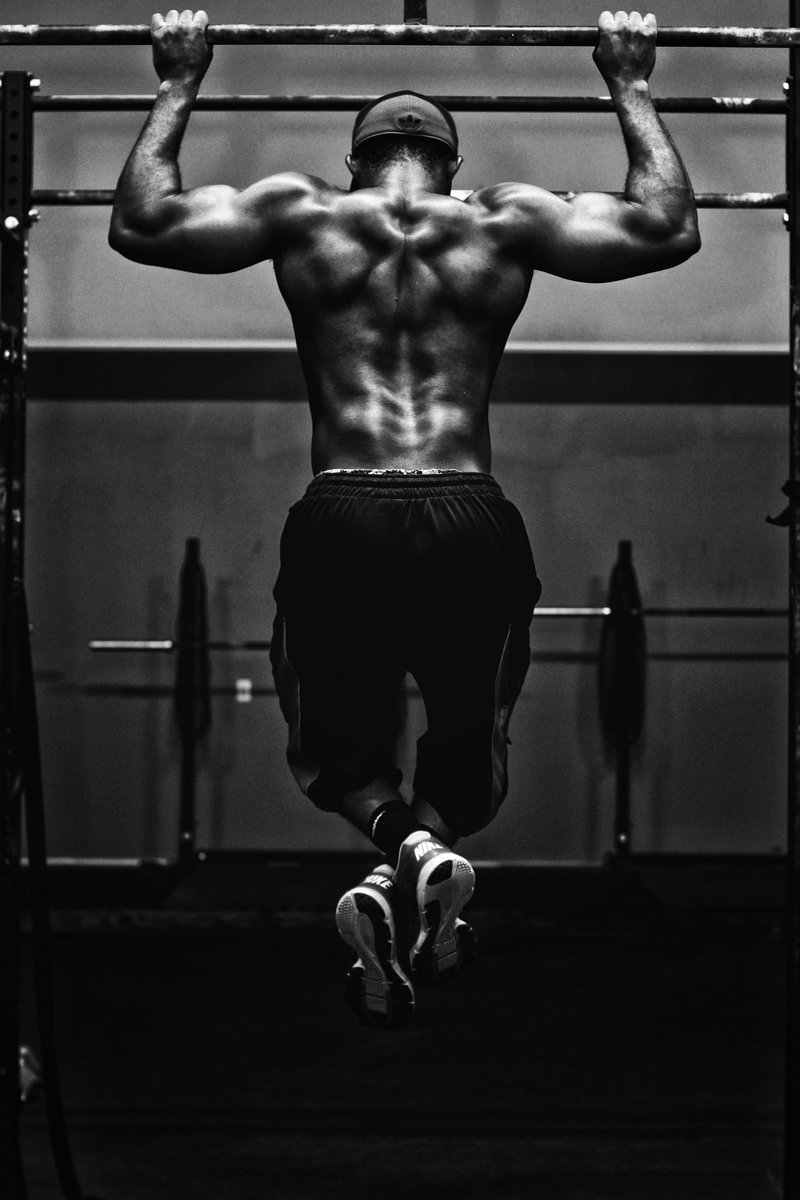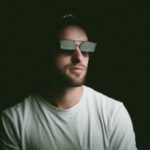The Digital Hormone Drain: What Screens Are Doing to Your T 📱🧠
You wake up to your phone. Spend all day under LEDs. Scroll at night under blue glare. And now your energy, libido, and testosterone are tanking. Coincidence? Not at all. Today we’re diving into the shocking link between blue light and testosterone.
Blue light is a high-energy visible (HEV) light that disrupts circadian rhythm, melatonin, and ultimately your testosterone production. And in a world addicted to screens, it might be the silent killer of modern masculinity.
What Is Blue Light?
Blue light is part of the visible light spectrum, emitted naturally by the sun and artificially by screens (phones, TVs, laptops) and LED lighting. While some daytime exposure is good, excessive blue light at night confuses your body clock—and your hormones.
How Blue Light Affects Sleep and Testosterone
Testosterone is produced while you sleep—especially during deep REM cycles. But blue light suppresses melatonin, your sleep-inducing hormone. The result? Less sleep quality, less REM, and less testosterone.
Even 30 minutes of screen time before bed can delay melatonin release by hours. Over time, this destroys your recovery, lowers your libido, and blunts morning erections.
Check out how this effect stacks with other lifestyle habits in our article on stress hormones and sex drive.
The Science: Blue Light Suppresses Hormones That Power Masculinity
In a 2017 study, researchers found that nighttime exposure to blue light led to significantly reduced melatonin and altered testosterone levels in male participants. Those exposed to bright screens before bed had lower morning T compared to those who wore blue-blocking glasses.
Another animal study revealed that excessive blue light exposure disrupted the hypothalamic-pituitary-gonadal (HPG) axis—the master controller of testosterone. Translation? Your phone is signaling your brain to shut down reproduction.
Blue Light and Fertility
It’s not just testosterone—blue light also impacts sperm. A study in the journal Chronobiology International found that men with higher nighttime screen use had lower sperm motility and concentration. The combination of poor sleep, hormonal imbalance, and EMF exposure creates a perfect storm for sub-fertility.
Case Study: Late-Night Gamer vs. Hormonal Optimizer
Jake plays online games until 2AM, sleeps 5 hours, wakes groggy, and needs caffeine to function. No drive, no morning wood, and increasing belly fat. Bloodwork? Low testosterone and elevated cortisol.
Mike blocks blue light after sunset, trains in the morning, sleeps 8 hours in a pitch-black room, and wakes with energy. Testosterone: 820 ng/dL. Libido strong. Confidence solid.
One habit—screen hygiene—made all the difference.
Want Better Sleep and Higher Testosterone?
- 🛑 Cut screens 90 mins before bed
- 🕶 Use blue-blocking glasses at night
- 💡 Replace LEDs with red or amber lights post-sunset
- 🛌 Make your room pitch black (blackout curtains, no LEDs)
- 🌄 Get early morning sunlight to reset circadian rhythm
Want to combine this with a testosterone-boosting training plan? Check our guide to cardio vs strength testosterone.
The Hidden Mental Cost of Blue Light Exposure
Blue light doesn’t just wreck your sleep—it affects your mood, focus, and motivation. Excessive exposure lowers dopamine sensitivity, increases brain fog, and can trigger low-grade anxiety.
When dopamine drops, so does drive. That includes your ambition, your intensity in the gym, and yes—your sex drive. Pair this with rising prolactin from poor sleep, and your hormonal profile starts to resemble that of burnout.
This brain-hormone crash affects every area of life: work, relationships, bedroom performance, and even self-confidence.
Alcohol, Blue Light, and the Perfect Storm
Blue light at night is often paired with another testosterone killer: alcohol. Watching Netflix with a drink before bed? You’ve just stacked two of the biggest sleep and hormone disruptors known to man.
Alcohol crashes REM sleep and raises estrogen. Blue light delays melatonin and suppresses testosterone. Together, they kill recovery, lower libido, and drain your masculine energy.
For the full breakdown, don’t miss our article on the alcohol testosterone myth.
Ready to Break Free From Hormonal Sabotage?
If you’re serious about optimizing testosterone, blue light isn’t just a tech problem—it’s a lifestyle one. Reclaim your circadian rhythm, upgrade your energy, and dominate every area of your life.
Start your full hormonal upgrade with our complete system here.
And if your hairline is fading along with your testosterone, check out our article on hair loss and testosterone.
Night Owl vs. Daylight Warrior: Hormonal Differences
Dan scrolls TikTok until 1AM. Wakes up exhausted. Hits snooze three times. Skips the gym. Libido? Gone. Mood? Flat.
Rob wakes at 6:30AM, steps into sunlight, hits a 45-min strength workout, eats eggs and avocado, and shuts off screens at 9PM. Testosterone? 900+. Mood? Solid. Sex drive? Unshakable.
Same age. Same genetics. Different light exposure. Different outcomes.
Frequently Asked Questions About Blue Light and Testosterone
Does blue light really lower testosterone?
Yes. Indirectly. Blue light suppresses melatonin, disrupts sleep, and reduces REM cycles—where testosterone is primarily produced. Long-term sleep disruption equals low T.
Can blue light affect erections or libido?
Absolutely. Poor sleep from blue light exposure reduces nitric oxide, dopamine, and testosterone—three pillars of strong sexual performance.
Do blue light glasses work?
Yes. Studies show blue-blocking glasses worn 2–3 hours before bed improve melatonin levels, sleep quality, and overall hormonal rhythm. But nothing beats reducing screen time itself.
What’s the best way to reduce blue light naturally?
Use amber bulbs at night, wear blue blockers after sunset, and shut off screens 60–90 minutes before bed. Get sunlight early in the morning to anchor your circadian rhythm.
Can I reverse the damage from years of screen exposure?
Yes. Your body adapts quickly to better habits. Most men notice better sleep, stronger erections, and improved energy within 7–14 days of blocking blue light consistently.
Final Checklist: Defend Your Testosterone From Blue Light
- ✅ Cut screens 90 mins before bed
- ✅ Blue blockers after sunset
- ✅ Red/amber lights at night
- ✅ Total darkness in your room
- ✅ Morning sunlight exposure daily
- ✅ Strength training 3–4x/week
- ✅ No alcohol or screens before sleep
Conclusion: Light Rules Your Hormones—Master It
The connection between blue light and testosterone is real—and more dangerous than most men realize. But it’s also fixable. With a few simple shifts, you can restore your rhythm, amplify your T, and reclaim control over your body and mind.
At supremepenis.com, we help men break free from modern traps. You don’t need another pill. You need a system. One rooted in nature, biology, and real masculine power.
Next up: Learn how stress destroys hormones in our guide on stress hormones and sex drive.
📱 Screen Habits vs Testosterone Quality
| Screen Behavior | Effect on Sleep | Testosterone Impact |
|---|---|---|
| No screen 90 mins before bed | ✅ Deep REM sleep | 🔼 Higher T |
| Scroll phone in bed | ⚠️ Delayed melatonin | 🔻 Lower T |
| Watch TV late night | 🟡 Poor sleep cycles | 🟠 Mid testosterone |
| Use blue light filters + glasses | 🟢 Improved recovery | 🟢 T protected |
Your Questions About Light, Sleep, and Testosterone 🔦😴
Can I just use dark mode instead of blue light blockers?
Dark mode helps reduce glare, but doesn’t block the actual blue wavelength. True blue blockers (glasses or filters) are needed to protect melatonin and testosterone fully.
How fast can I recover testosterone after cutting blue light?
Most men see results in 7–14 days—more energy, stronger morning erections, and better sleep. Full hormone recovery depends on consistency, diet, and stress levels.









